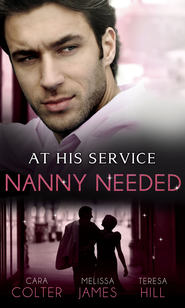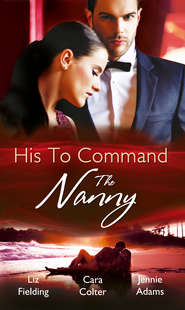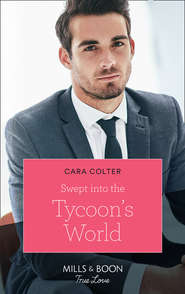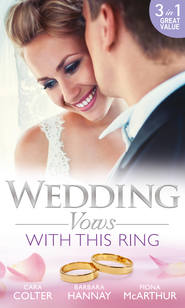По всем вопросам обращайтесь на: info@litportal.ru
(©) 2003-2024.
✖
A Vow to Keep
Автор
Год написания книги
2018
Настройки чтения
Размер шрифта
Высота строк
Поля
“Cute,” he said, smiling at her.
She touched her hair self-consciously. Cute was not the look she had been trying for at all. Attractive-but-not-interested would have summed it up.
Then she realized he meant the car.
It was a Smart Car, the Mercedes Benz developed Micro Compact, another of her change-of-life purchases.
“Bobbi calls it a bean can,” she said, and couldn’t resist giving her tiny car an affectionate pat. “She can’t believe I got rid of the SL-500 for this.”
But Linda did not see it that way. She saw it as a step back toward herself, back toward the young woman she had once been who had cared so passionately about her world. She was sick to death of waste, Beef Wellington in the garbage being only one example. She now found excess exhausting. She’d had the dream—the huge house on the river, the staff, the cars, the jewels—and it had drained her energy like a vampire that sucked life blood. She wanted simplicity, she wanted to make her way back to who she genuinely was.
Was the big handsome guy looking at her car going to be a detour on that journey? He looked up, met her eyes. Or did he have the map of how to get where she was going?
“You like it?” he asked of the car, holding open the door of his Escalade for her.
“I love it.”
“Good for you.”
“And do you like this one?” she asked as he came around to the driver’s side and slid in beside her. The vehicle was obviously very nearly new and smelled of leather—and him.
He shrugged, started the vehicle, did up his shoulder belt. “I see it as a necessity, part of the business. I take clients to see properties. I want as safe and reliable and comfortable a ride for them as possible.”
She pondered that. He was so different from Blair, who had only been interested in how things looked, how to manipulate people’s impressions of him. A car like this, for Blair, would never have been about the comfort and safety of his clients.
How dangerous was it that she was comparing Rick to Blair?
“You know me, Linda—”
Did she? That’s what she had to keep reminding herself, that maybe she didn’t know Rick at all. She remembered those days after Blair’s death, when the truth had begun to come out…that feeling of not knowing anyone. Maybe most of all not herself.
“If I wasn’t in this business, I’d probably still be driving a motorcycle. I own one. Nothing fancy. I take it out on the odd weekend, head to Banff, or do the ranch country loop through Black Diamond.”
Alone? she wanted to ask. But she had already asked that, and it would have seemed way too interested to press further.
They chatted about mutual acquaintances, Rick updating her on the people she had turned her back on. Life, it seemed, had gone on. Babies had been born, couples had married and divorced, parents had died.
She liked the way he drove, with a complete lack of aggression, effortlessly handling the traffic, showing no impatience when things suddenly bottle-necked on Memorial Drive.
“There’s the problem,” he said.
A young woman stood in front of an older model import, the hood up, staring helplessly at the engine.
Rick signaled and pulled off the road in front of her. “I’ll just see if I can give her a hand,” he said.
He said it so casually, as if it would be unthinkable not to do the decent thing. A few minutes later, he was back in the car. His hands were dirty and he wiped them on a white handkerchief. He obviously didn’t regret his decision, even if it had meant getting his hands dirty.
“That was nice,” Linda said, aware she offered the compliment grudgingly. “To stop and help her.”
“I couldn’t do much. Called a tow truck for her.”
It was still nice. Decent. An old-fashioned virtue that she wondered about the existence of from time to time.
“She reminded me of Bobbi,” he said. “I’d want to know someone would stop and help Bobbi—or you—if you needed it.”
Linda considered her worst weakness to be the tenderness of her heart. She saved that side of herself now for one person and one person only, her daughter. Yet, just now, she was suddenly nearly swamped with a sense of tenderness.
Harshly she pulled herself up. He could have done the decent thing for her once, too. He could have helped her by simply telling her the truth about her husband’s affair. He had chosen not to.
That’s what she needed to remember when she was getting caught up in the heaven of his scent, in the astonishing green of his eyes, in the way his fingers looked on the steering wheel. She needed not to let those things—or even his chivalrous roadside stop—sway her into believing in the basic decency of the man.
She folded her arms over the place where her heart hurt and glared out the window.
Rick could not help but notice Linda changed abruptly, her thermostat going from just slightly above freezing to flash frozen in the blink of an eye.
What was he doing, anyway? Offering to help her unpack and bake cookies? He was negotiating to get what he wanted, he defended himself. That’s what he did for a living. That’s what he was good at.
But couldn’t he have thought of a trade that did not involve tangling with her quite so personally? He was weaving his life with hers, and that was quite a bit more than he had promised Bobbi he was going to do.
Damn it, he liked her.
He had always liked her. And he had always known, guiltily, she had married a man completely unworthy of her.
He sighed heavily. She glanced at him, and he was afraid she would see his soul, see the weight that was carried there, the burden.
Why had she asked him, earlier, if he was in a relationship? How many reasons could there be for a woman to ask a man that? It suddenly occurred to him that even though he and Linda had known each other since they were both young and foolish, this was brand-new territory for them. For the first time in their shared history, they were both without partners. And he’d offered to bake cookies with her! That was probably akin to a marriage proposal to a widow!
If there was one thing Rick was not doing again, it was marriage. When he’d signed the final divorce papers, he had buried the part of himself that could care that deeply, the part of himself that could be hurt that much.
The truth was, he liked being single. And not for any of the reasons a person might have thought. He did not like playing the field, he did not even particularly like dating. What he liked was freedom: to climb on that motorbike and go without having to answer to anyone or to be back at any given time. He liked being able to phone and book a trip to Taiwan or Bombay or Borneo on a whim. He liked backpacking through Mexico and South America with absolutely no plan, and he liked riding on buses crowded with chickens and mothers and babies and grandmothers. He liked to get up in the middle of the night and play chess on the Internet. Rick Chase liked being single!
The something that had sizzled through him back there at her house, watching her in her bedroom, could threaten all that, if he let it.
He wasn’t going to let it, plain and simple.
She was a good deed, not very unlike stopping to help that girl on the road back there. Linda would probably kill him if she knew. Or perhaps she’d kill him anyway. He slid her a look. He needn’t have worried about Linda having designs on him. Whatever he’d said or done back there after he’d pulled back into traffic had sealed his fate. She looked like she’d rather be sharing the car with Attila the Hun than with him.
They entered the Mount Royal area, located on a hill just south of downtown Calgary. Developed between 1904 and 1914, this neighborhood had been developed to be prestigious from the very beginning. The lots were huge, the houses gracious, the boulevards lined with mature, leafy trees. Despite some in-fill housing, the area still held the grace of old money. Houses here started at one and a half million dollars, and many sold for three times that.
They pulled up to the O’Brian house, typical of this area. It had covered porches on both floors, bay windows with original stained glass uppers, wide steps, an enormous yard. Despite the thrill of pleasure Rick felt when he saw the house, he could not stifle a groan. For the one other woman who thought he was Attila the Hun was sitting on the front porch of his house, rocking back and forth as if she owned the place.
“There’s Mildred,” he said. “Careful. She’s probably got a shotgun loaded with salt up there on that porch with her.”
Mildred, of course, looked like the quintessential little old lady, so Linda gave him a look that branded him an insensitive boor, and bailed out of the Cadillac as if it held a bad smell.
He sighed and got out of the vehicle. He shoved his hands in his pockets and trailed Linda down the walk. Mildred, her face set in battle lines, was coming down the stairs to meet them.
“Linda Starr,” he said reluctantly, “Mildred Housewell.” What he wanted to say, to Mildred, was get the hell off my property, but he didn’t want Linda to know just how mean he could be.











